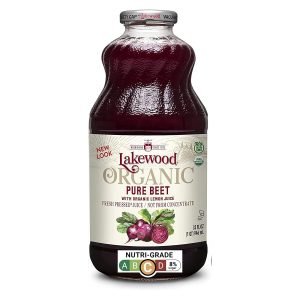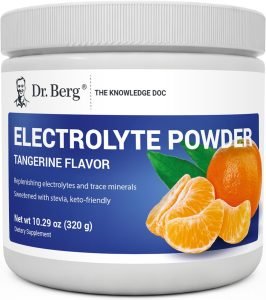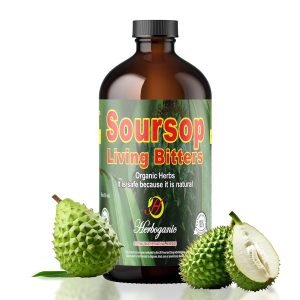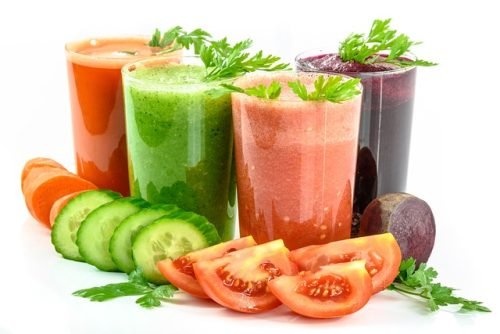Best Morning Drink For High Blood Pressure?
Are you searching for the perfect morning drink that can help manage your high blood pressure? Look no further! In this article, we will explore the options and find out what is the best morning drink for individuals with high blood pressure. Say goodbye to the dilemma of choosing the right beverage and start your day on a healthy note.
Overview of High Blood Pressure
High blood pressure, also known as hypertension, is a common medical condition that affects countless individuals around the world. It occurs when the force of blood against the walls of the arteries is consistently too high, putting extra strain on the heart and blood vessels. If left unmanaged, high blood pressure can lead to serious health complications, such as heart disease, stroke, and kidney problems.
Explanation of high blood pressure
High blood pressure can be caused by various factors, including genetics, lifestyle choices, and underlying medical conditions. When your blood pressure is constantly elevated, it can damage the delicate lining of your blood vessels, contributing to the development of atherosclerosis, a condition where plaque builds up in the arteries. This narrows the arteries and restricts blood flow, increasing the risk of heart attacks and strokes.
Effects and complications of high blood pressure
Having high blood pressure can have a detrimental impact on various parts of your body. It can lead to heart disease, which includes conditions such as coronary artery disease, heart failure, and arrhythmias. Uncontrolled hypertension can also damage your kidneys, leading to chronic kidney disease. Additionally, high blood pressure affects blood vessel health and can cause vision problems, sexual dysfunction, and contribute to cognitive decline in older adults.
Importance of a Healthy Morning Drink
Choosing the right morning drink is crucial for managing high blood pressure. Starting your day with a healthy beverage can have a positive impact on your blood pressure levels and contribute to overall blood pressure control. By incorporating certain drinks into your morning routine, you can enhance your body’s ability to regulate blood pressure and promote better cardiovascular health.
Why choosing the right morning drink is important for managing high blood pressure
A healthy morning drink can provide essential nutrients, antioxidants, and compounds that support cardiovascular health. It can also help to reduce inflammation, boost your body’s natural defenses, and improve the function of your blood vessels. By focusing on the right morning beverage, you can make a proactive choice to support your body’s fight against high blood pressure.
How a healthy morning drink can contribute to overall blood pressure control
Certain beverages have been scientifically shown to have a positive impact on high blood pressure. From reducing the constriction of blood vessels to lowering cholesterol levels and acting as natural diuretics, these morning drinks can play a valuable role in managing your blood pressure and promoting overall cardiovascular well-being.
Factors to Consider
When selecting a morning drink for high blood pressure, there are several key factors to consider. These factors can significantly influence their potential benefits or drawbacks. It’s important to pay attention to the sodium and potassium content, antioxidants properties, and caffeine levels of the drinks you choose. Keeping these factors in mind can help you make informed decisions and opt for beverages that align with your health goals.
Sodium content
Limiting sodium intake is crucial for managing high blood pressure. Excessive sodium can cause fluid retention and increase blood volume, which raises blood pressure. When choosing a morning drink, check the sodium content on the label. Opt for beverages with low sodium content or no added salt.
Potassium content
Potassium is an important mineral that plays a vital role in blood pressure regulation. It counteracts the effects of sodium and can help relax the walls of blood vessels, thus reducing blood pressure. Look for morning drinks that are rich in potassium, such as certain fruit juices or smoothies that incorporate potassium-rich fruits like bananas or oranges.

Antioxidant properties
Antioxidants are compounds that help protect cells from damage caused by free radicals. They have been linked to numerous health benefits, including lower blood pressure. Choosing morning drinks that are rich in antioxidants can provide additional support in managing high blood pressure. Green tea, hibiscus tea, and pomegranate juice are excellent examples of beverages with high antioxidant content.
Caffeine levels
Caffeine is a stimulant that can temporarily raise blood pressure. While moderate caffeine consumption is generally safe for most people, excessive intake can have adverse effects on blood pressure. If you are sensitive to caffeine or have high blood pressure, it is advisable to choose morning drinks that are caffeine-free or have lower caffeine levels.
Top Morning Drinks for High Blood Pressure
While there are numerous morning beverages that can benefit individuals with high blood pressure, some stand out for their specific properties and potential therapeutic effects. Consider incorporating these top morning drinks into your routine for optimal blood pressure control:
Green tea
Green tea is renowned for its abundance of antioxidants, particularly catechins. These powerful compounds have been found to help lower blood pressure and improve blood vessel function. By drinking green tea in the morning, you can kickstart your day with a healthy dose of antioxidants and potentially support your cardiovascular health.
Hibiscus tea
Hibiscus tea has been shown to have a significant impact on reducing high blood pressure. This delicious and refreshing beverage acts as a natural diuretic, promoting the excretion of excess fluids from the body. Additionally, hibiscus tea contains compounds that help relax blood vessels, leading to lowered blood pressure.
Beetroot juice
Beetroot juice is a natural source of nitrates, which the body converts into nitric oxide. Nitric oxide helps to relax and widen blood vessels, improving blood flow and reducing blood pressure. Incorporating beetroot juice into your morning routine can provide a natural boost to your cardiovascular health.
Pomegranate juice
Pomegranate juice is packed with antioxidants known as polyphenols, which have been shown to reduce systolic blood pressure. It also improves overall heart health by enhancing nitric oxide production, which aids in proper blood flow and maintaining healthy blood pressure levels.
Celery juice
Celery juice has been gaining popularity for its potential blood pressure-lowering properties. It contains active compounds that help relax blood vessels, leading to improved circulation and reduced blood pressure. Additionally, celery juice acts as a natural diuretic, helping to eliminate excess fluid from the body.

Benefits of Green Tea
Green tea offers a multitude of health benefits, making it an excellent choice for individuals with high blood pressure. Some specific benefits of green tea include:
Rich in antioxidants
Green tea is packed with powerful antioxidants called catechins. These antioxidants help combat free radicals in the body, reducing oxidative stress and promoting overall health. By regularly consuming green tea, you can increase your antioxidant intake and potentially lower blood pressure.
Helps lower blood pressure
Several studies have shown that green tea can have a positive effect on blood pressure levels. The catechins found in green tea have been found to inhibit the enzyme responsible for constricting blood vessels, promoting improved blood flow and lower blood pressure.
Improves blood vessel function
Green tea has been shown to improve the function of the endothelial cells lining the blood vessels. These cells play a vital role in regulating blood flow and blood pressure. By enhancing endothelial function, green tea can contribute to better overall cardiovascular health.
Reduces LDL cholesterol levels
Low-density lipoprotein (LDL) cholesterol, also known as “bad” cholesterol, can contribute to the development of atherosclerosis and increase the risk of heart disease. Green tea has been found to help lower LDL cholesterol levels, potentially reducing the risk of cardiovascular complications associated with high blood pressure.
Benefits of Hibiscus Tea
Hibiscus tea is not only a delightful and refreshing beverage but also offers several benefits for individuals with high blood pressure. Some specific benefits of hibiscus tea include:
Acts as a natural diuretic
Hibiscus tea has mild diuretic properties, meaning it encourages urination and helps remove excess fluids from the body. This can be beneficial for individuals with high blood pressure as it helps to reduce fluid volume, which can ultimately lower blood pressure.
Lowers blood pressure
Research has shown that hibiscus tea can have a significant impact on blood pressure levels. It contains natural compounds that help relax blood vessels, leading to improved blood flow and reduced blood pressure.
Reduces overall cholesterol levels
High levels of cholesterol can contribute to the development of atherosclerosis and increase the risk of heart disease. Hibiscus tea has been shown to reduce total cholesterol and triglyceride levels, which can lead to better heart health and improved blood pressure control.
Contains anti-inflammatory properties
Inflammation plays a role in the development of various chronic health conditions, including high blood pressure. Hibiscus tea contains anti-inflammatory properties that may help reduce inflammation and promote overall cardiovascular health.
Benefits of Beetroot Juice
Beetroot juice is a nutritious and vibrant drink that offers numerous benefits for individuals with high blood pressure. Some specific benefits of beetroot juice include:
High in nitrates
Beetroot juice is naturally high in nitrates, which the body converts into nitric oxide. Nitric oxide helps to relax and widen blood vessels, improving blood flow and reducing blood pressure. Regular consumption of beetroot juice can provide a natural boost to your cardiovascular health.
Improves blood flow and oxygen delivery
By enhancing blood vessel dilation and expanding their capacity, beetroot juice promotes better blood flow and oxygen delivery throughout the body. This can have a positive impact on blood pressure regulation and overall cardiovascular health.
Lowers blood pressure
Studies have shown that beetroot juice consumption can lead to significant reductions in blood pressure, particularly systolic blood pressure. The high nitrate content of beetroot juice contributes to its blood pressure-lowering effects.
Enhances nitric oxide production
Beetroot juice stimulates the production of nitric oxide, a vital molecule that plays a crucial role in blood vessel relaxation and overall cardiovascular health. By increasing nitric oxide levels, beetroot juice promotes healthy blood pressure and optimal heart function.

Benefits of Pomegranate Juice
Pomegranate juice is a delicious and nutritious drink that provides numerous benefits for individuals with high blood pressure. Some specific benefits of pomegranate juice include:
Rich in antioxidants
Pomegranate juice is loaded with antioxidants, particularly polyphenols. These powerful compounds can help reduce oxidative stress, protect against cell damage, and promote better cardiovascular health. By consuming pomegranate juice regularly, you can increase your antioxidant intake and potentially lower blood pressure.
Reduces systolic blood pressure
Research has shown that pomegranate juice consumption can lead to significant reductions in systolic blood pressure, which is the top number in a blood pressure reading. Regular intake of pomegranate juice may help individuals with high blood pressure achieve better blood pressure control.
Improves overall heart health
Pomegranate juice has been found to have numerous heart-healthy properties. It improves blood vessel function, reduces inflammation, and enhances nitric oxide production. These factors contribute to better overall heart health and can have a positive impact on blood pressure regulation.
Enhances nitric oxide production
Nitric oxide is a crucial molecule that helps relax and dilate blood vessels, improving blood flow and reducing blood pressure. Pomegranate juice contains compounds that stimulate nitric oxide production, promoting better cardiovascular health.
Benefits of Celery Juice
Celery juice has gained popularity for its potential benefits in managing high blood pressure. Some specific benefits of celery juice include:
Contains active compounds that help relax blood vessels
Celery contains compounds, such as phthalides, that have been found to help relax and dilate blood vessels. By improving blood vessel function, celery juice can contribute to better blood flow and lower blood pressure.
Reduces blood pressure
Regular consumption of celery juice has been associated with reduced blood pressure levels. Its potential blood pressure-lowering effects may be attributed to its ability to relax blood vessels and improve overall cardiovascular health.
Has diuretic properties
Celery juice acts as a natural diuretic, promoting the excretion of excess fluid from the body. This can be beneficial for individuals with high blood pressure, as it helps reduce fluid volume and subsequently lowers blood pressure.
May lower cholesterol levels
Studies have suggested that celery juice may help lower cholesterol levels, including LDL cholesterol. By reducing cholesterol levels, celery juice can support overall cardiovascular health and contribute to better blood pressure control.
Other Considerations
While morning drinks play a significant role in managing high blood pressure, there are other important factors to consider for optimal blood pressure control and overall cardiovascular health. These include:
Avoiding sugary drinks
Many morning beverages, such as fruit juices and smoothies, can contain high amounts of added sugars. Excessive sugar consumption can contribute to weight gain, insulin resistance, and ultimately, high blood pressure. It is important to choose low-sugar or sugar-free options to avoid potential negative impacts on blood pressure.
Limiting caffeine intake
Caffeine is a stimulant that can temporarily raise blood pressure. While moderate caffeine consumption is generally safe for most people, excessive intake can have adverse effects on blood pressure. Limiting caffeine from sources like coffee, black tea, and energy drinks can be beneficial for individuals with high blood pressure.
Combining morning drinks with a balanced diet and regular exercise
While morning drinks can play a role in blood pressure management, it is important to adopt a holistic approach to cardiovascular health. Incorporating a balanced diet rich in fruits, vegetables, whole grains, lean proteins, and healthy fats, along with regular exercise, can significantly contribute to better blood pressure control.
Consulting a healthcare professional for personalized advice
It is essential to consult with a healthcare professional, such as a doctor or registered dietitian, for personalized guidance and recommendations. They can provide tailored advice based on your specific health needs, medications, and any underlying conditions. Working with a healthcare professional ensures that you receive accurate and appropriate information to manage your high blood pressure effectively.
In conclusion, selecting a healthy morning drink is crucial for individuals with high blood pressure. By considering factors such as sodium and potassium content, antioxidant properties, and caffeine levels, you can make informed choices that support your cardiovascular health. Incorporating top morning drinks like green tea, hibiscus tea, beetroot juice, pomegranate juice, and celery juice can provide various benefits, from lowering blood pressure to improving blood vessel function and enhancing overall heart health. Remember to also consider other lifestyle factors and consult with a healthcare professional for personalized advice. With the right morning drink and a comprehensive approach to managing high blood pressure, you can take proactive steps towards better cardiovascular well-being.




